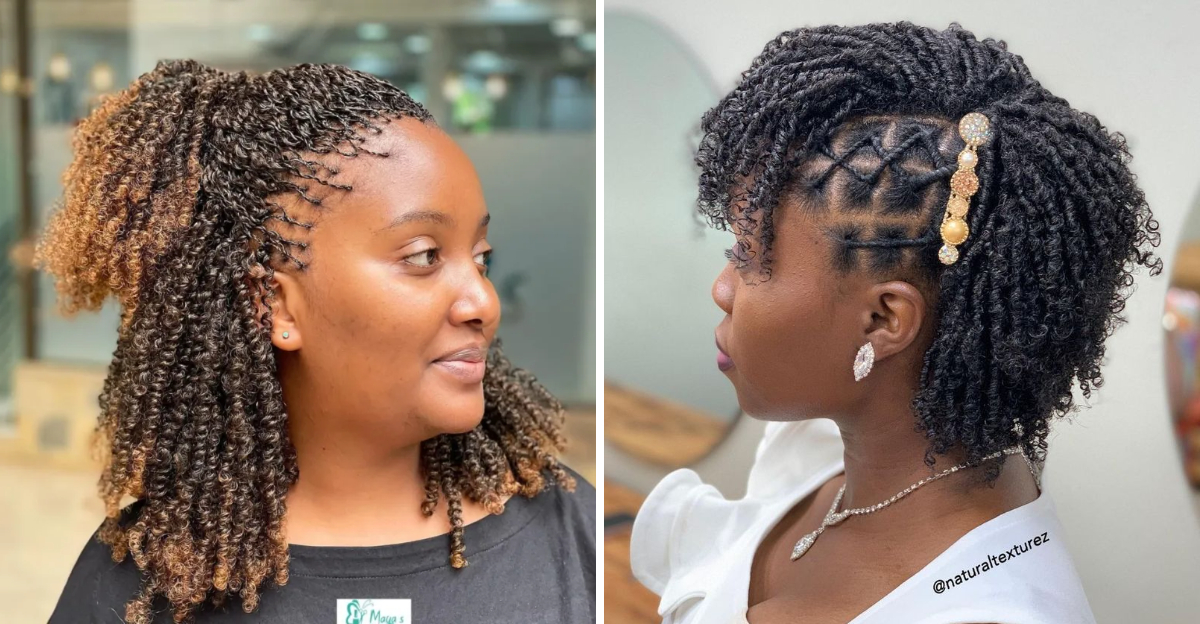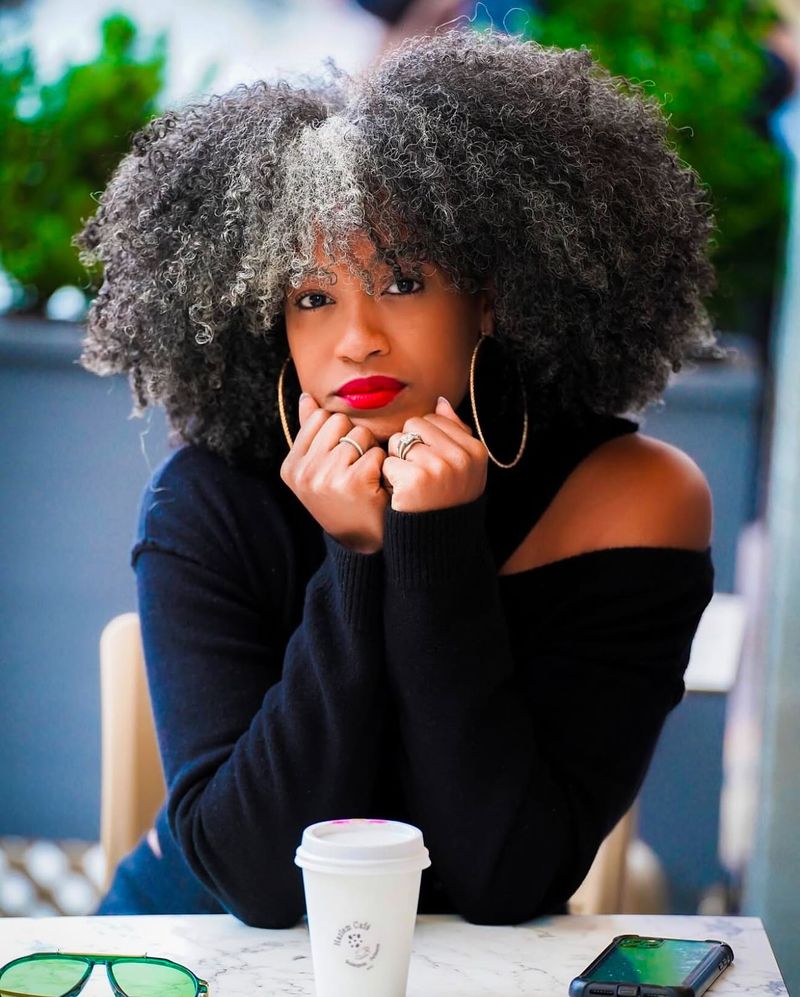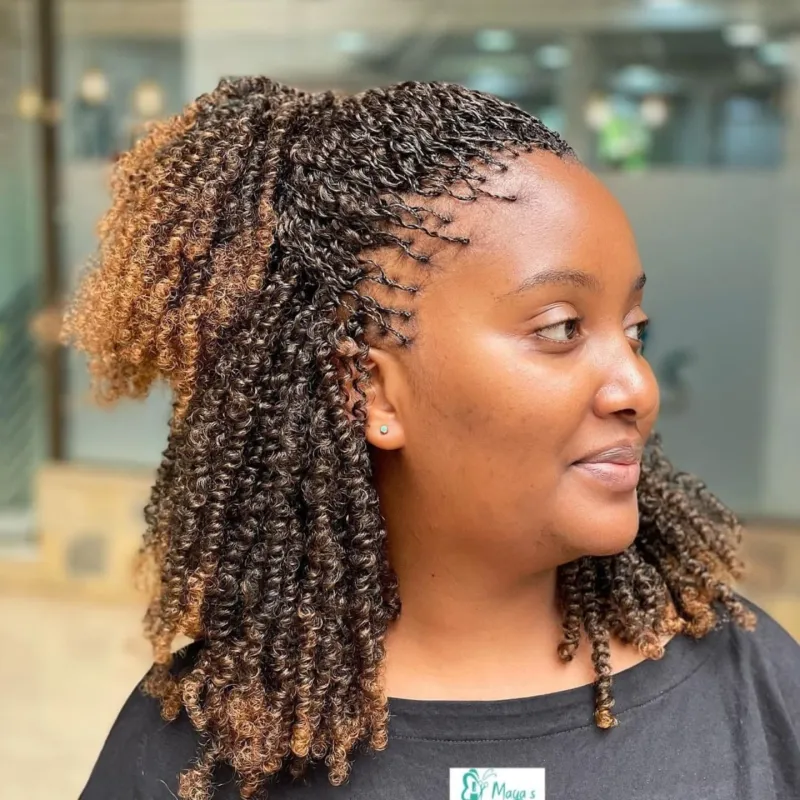Black women’s hair has been a subject of fascination, misunderstanding, and sometimes unwelcome commentary for generations. From workplace policies to casual encounters, many face a barrage of intrusive questions and remarks about their natural locks, protective styles, or hair choices. These comments often stem from ignorance but can feel exhausting, offensive, and downright frustrating when heard repeatedly.
1. “Can I Touch Your Hair?”
Personal boundaries seem to vanish when some people encounter textured hair. This question turns Black women into petting zoo exhibits rather than human beings deserving respect.
Nobody walks up to strangers asking to touch their skin or clothes, so why is hair suddenly public property?
Relacionadas: -7 Straight-Hair Problems No One Talks About And 8 Easy Fixes That Shine
2. “Is That Your Real Hair?”
The versatility of Black hair allows for countless beautiful styles. This invasive question suggests Black women can’t naturally grow long hair or implies deception.
Whether wearing natural curls, extensions, or wigs, the answer remains: it’s none of your business.
3. “Your Hair Looks So Professional Today”
Translation: your natural hair doesn’t fit corporate America’s narrow beauty standards. This backhanded compliment reveals deeply rooted biases against natural Black hairstyles in professional settings.
All Black hairstyles are professional when done neatly, period.
4. “How Do You Wash That?”
Black hair care routines aren’t mysterious rituals requiring explanation. This question carries the offensive implication that Black hairstyles are somehow unclean or difficult to maintain.
Like everyone else, Black women have established hygiene practices tailored to their specific hair needs.
5. “Your Natural Hair Is So Brave”
Wearing hair as it naturally grows shouldn’t be considered an act of courage. This comment unintentionally reveals how society has pathologized Black features.
Natural Black hair isn’t a political statement or act of defiance—it’s simply hair in its authentic form.
6. “Why Don’t You Just Straighten It?”
Heat damage, time consumption, and personal preference are just a few reasons why this suggestion falls flat. The question implies straight hair is inherently better or more desirable.
Many Black women embrace their natural texture after years of damaging heat styling pressures.
7. “It Grows So Slowly”
Shrinkage is real! Curly and coily hair can appear much shorter than its actual length when dry. Many Black women experience significant length retention that’s simply not visible.
Textured hair grows at the same rate as straight hair but coils rather than hanging down.
8. “You Look Better With Straight Hair”
Ouch! This comment reinforces Eurocentric beauty standards that have been forced upon Black women for centuries. It suggests natural Black hair is somehow less beautiful or acceptable.
Every hair texture has its own unique beauty that deserves celebration, not comparison.
9. “That Must Take Forever To Do”
Yes, some protective styles require significant time investment. However, this comment often comes with an undertone of judgment rather than genuine curiosity about the cultural significance.
The time spent is valuable for both hair health and cultural connection.
10. “Is That A Wig?”
The versatility of Black hair allows for frequent style changes, but this doesn’t warrant interrogation. Wigs and weaves are legitimate styling choices, not something to be exposed or questioned.
This invasive question often stems from disbelief that Black women can achieve certain looks naturally.
11. “You’d Look Better With Your Natural Hair”
Policing Black women’s hair choices goes both ways. Whether wearing protective styles, wigs, or straightened hair, Black women face criticism from all directions.
Hair choices are personal and often made for practical reasons like protection, convenience, or simply wanting variety.
12. “Does The Carpet Match The Drapes?”
This sexually charged question combines racism and sexism in one deeply inappropriate package. Black women’s bodies are not exotic curiosities for public speculation.
The hypersexualization of Black women through such comments perpetuates harmful stereotypes that date back to slavery.
13. “Can You See Through All That Hair?”
Big hair doesn’t equal limited visibility! This seemingly innocent joke actually mocks the volume and texture of natural Black hair styles.
Comments like these treat Black hair as comical or problematic rather than as the beautiful crown it truly is.
14. “You Look So Ethnic Today”
Describing Black hairstyles as “ethnic” others them as exotic or unusual rather than simply beautiful. This microaggression positions whiteness as the default and everything else as a deviation.
Black hairstyles aren’t costumes or temporary adventures in “ethnicity”—they’re cultural heritage.
15. “Your Hair Is So Unprofessional”
Despite progress with the CROWN Act, many Black women still face discrimination based on their natural hair. This harmful comment has cost jobs, educational opportunities, and promotions.
No hairstyle affects one’s ability to perform professionally—bias is the real unprofessional element here.
















